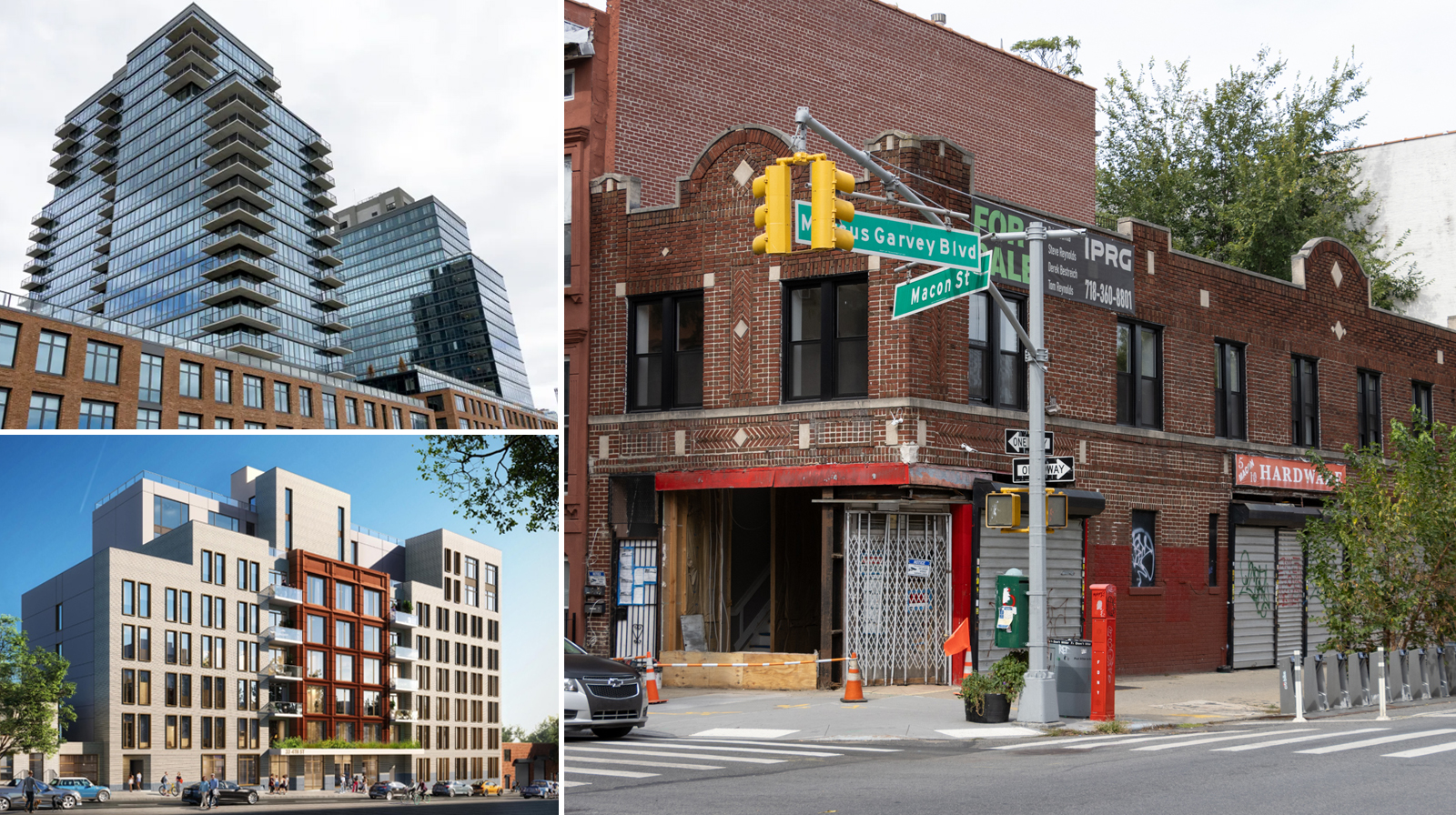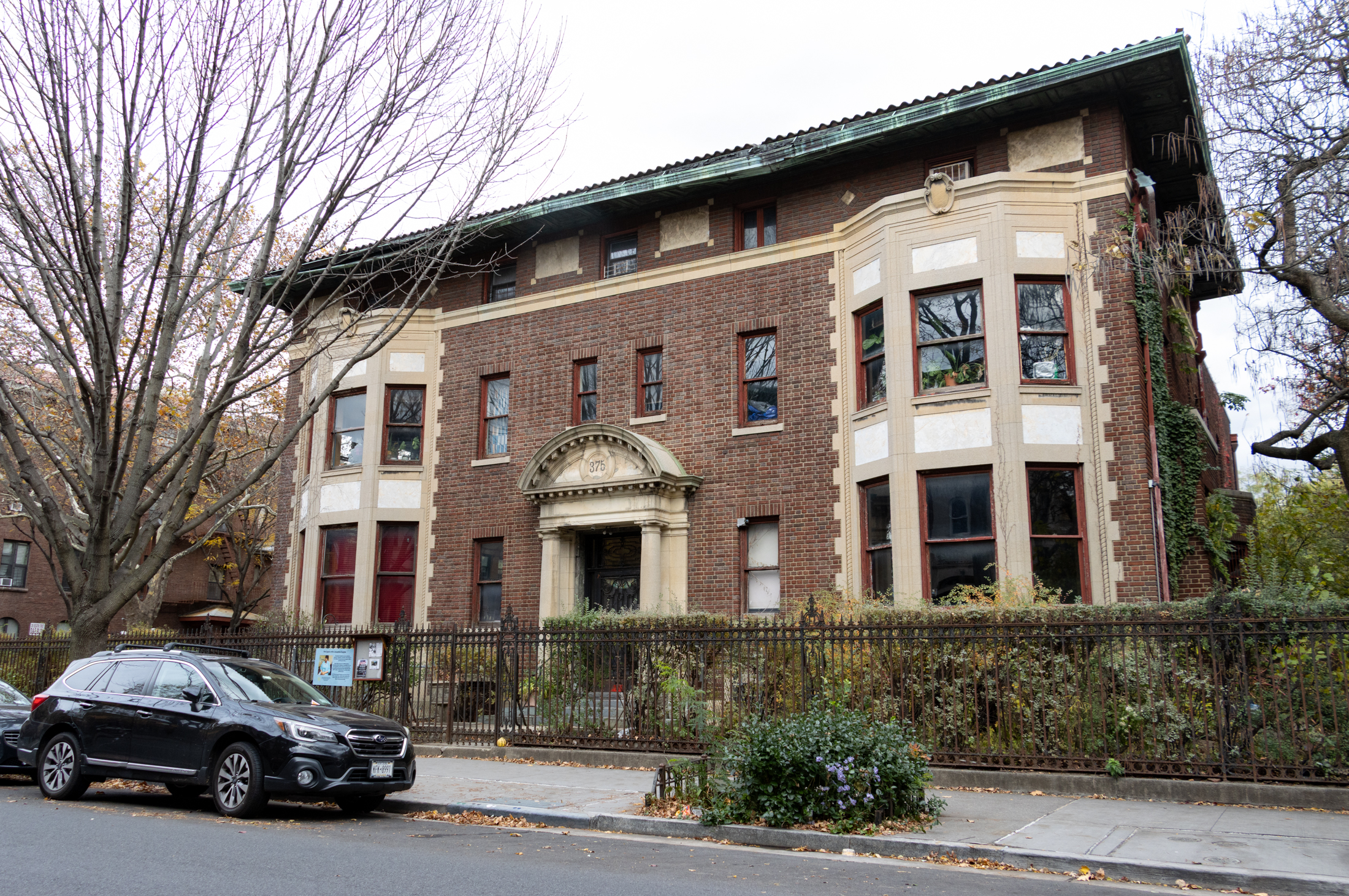Heights Rent-Controller Out on a Technicality
“Rob a bank, and if the federal government doesn’t catch you in five years, you’re off the hook,” said Josh Barbanel in a Times story this weekend, but for Robert Nocco, no statute of limitations could save him: the new owner was able to rummage back to 1976 to challenge Nocco’s right to a rent-controlled…

 “Rob a bank, and if the federal government doesn’t catch you in five years, you’re off the hook,” said Josh Barbanel in a Times story this weekend, but for Robert Nocco, no statute of limitations could save him: the new owner was able to rummage back to 1976 to challenge Nocco’s right to a rent-controlled apartment in Brooklyn Heights, at 222 Henry Street. Mr. Nocco’s parents moved into the apartment about fifty years ago, the article explains, and until June, Mr. Nocco, who was paying $212 in rent every month, had thwarted several legal attempts to remove him from the apartment. The current owner (who paid $386,566 for the five-story building in 2005, according to Property Shark) took his case to state housing regulators and noted that in 1976, Mr. Nocco rented another apartment in Brooklyn, while his parents moved to Florida. Since regulations would require Mr. Nocco to have lived with his parents for two years prior to taking over a rent-controlled apartment, this was enough for a housing officer to rule in the landlord’s favor. The two parties reached a settlement (in the very low six figures), and Mr. Nocco moved out in June.
“Rob a bank, and if the federal government doesn’t catch you in five years, you’re off the hook,” said Josh Barbanel in a Times story this weekend, but for Robert Nocco, no statute of limitations could save him: the new owner was able to rummage back to 1976 to challenge Nocco’s right to a rent-controlled apartment in Brooklyn Heights, at 222 Henry Street. Mr. Nocco’s parents moved into the apartment about fifty years ago, the article explains, and until June, Mr. Nocco, who was paying $212 in rent every month, had thwarted several legal attempts to remove him from the apartment. The current owner (who paid $386,566 for the five-story building in 2005, according to Property Shark) took his case to state housing regulators and noted that in 1976, Mr. Nocco rented another apartment in Brooklyn, while his parents moved to Florida. Since regulations would require Mr. Nocco to have lived with his parents for two years prior to taking over a rent-controlled apartment, this was enough for a housing officer to rule in the landlord’s favor. The two parties reached a settlement (in the very low six figures), and Mr. Nocco moved out in June.
Rent-Control Rights Stripped Away [NY Times]





I just moved into an apartment building with about half RC tenants in place > all of which have been there 35 years +. These folks are in their 80s and MOST of them have their middle aged children (and their spouses) occupying the apartment with them…… solely so that it will roll over after the parent kicks
boofer, you are protected as a tenant as long as you make less than $175k/year. When you move out, though, your apartment will be market rent.
We’re talking about two different things: I’m talking about how things are, and you are talking about how things should be.
In any case, Rent Control was abolished long ago for new tenants. Rent Stabilization is also basically over because of vacancy rules and MCI. So we are moving towards a non-rent-regulated city, it just takes time. Doesn’t this mean the problem is being fixed?
I live in a rent stabilized apartment that is just shy of $2000, can someone explain what happens when the rent reaches 2000?
Kris, I beleive rent control goes back to WWII. In any event I disagree with the premise that it’s OK to steal from people as long as you get away with it for long enough (sort of like how liberals view Cuba). Rent control is almost universally viewed as economically descructive. But there is a classic problem that prevents it from being fixed: a lot of people a hurt a little by rent control and a few people benefit a lot. Guess whose voice is louder?
lechacal, are you talking about people who bought in the 1930s? I think if they bought during the Great Depression, they probably did OK.
Regardless, I thought we were talking about the current situation. Rent laws have been in place for almost 70 years.
fsrq: Kris – please explain to all of us dummies how “eventually all the RC and RS tenants leave”? – b/c as far as I know there is no vacancy decontrol – only a rent level decontrol @ vacancy
I wasn’t implying anyone is a dummy, just thought it was obvious: eventually they die or move out. The vast majority of Rent Control tenants are pretty old. The dude in this story is an exception – and a scammer who illegally took over his parents’ place. Rent stabilized folks are usually younger, but also pay a closer-to-market rent than the RC peeps. And sometimes they move on and give up their RS apartments, because said apts are usually crappy walk-ups. I gave mine up, and so have a lot of my friends.
When a RC/RS tenant moves out, the landlord can renovate and then raise the rent through Major Capital Improvements (MCI). Once the legal rent is over $2000, the apartment becomes deregulated. It doesn’t matter how low the base rent is, a determined landlord can do enough reno to get the legal rent above $2k.
I am not taking a totally anti-landlord view at all. I rent out a house myself, so technically I am a landlord. I think I am actually right in the middle on this issue. There are entitled jerks who scam the system as tenants, and there are also unscrupulous slumlords who kick little old ladies out of their homes for greed.
Kris – You’re missing the plot. Those who owned property when the laws took effect experienced a forced wealth transfer from them to whoever they were renting to at the time. That loss of wealth is evidenced by what you correctly identify as a lower market price for rent controlled buildings. Now the renters who benefited from the initial wealth transfer – who might have actually been deserving at the time – are largely undeserving of state aid while rent controlled housing is largely unavailable to those who actually need it.
It’s yet another example of well intentional socialist thinking failing to account for follow-on consequences. Never trust a legislature to manage something as important as the economy.
also Kris – while this:
“Anyone buying a building with below market / rent stabilized tenants knows what they are getting into and pays considerably less for the property. Taxes are lower, too, based on rent roll.”
is mostly correct – the RS/RC laws are not static – nor are the increases, administration or the interpretations of those laws. Therefore LL of such buildings are taking on Policy Risk along with the market risk. And so while I certainly do not think anyone should feel sorry for LL of R/S properties, I also think a totally anti-LL view (which many in Govt -and here – propose to take) is dangerous path if you want to maintain the city’s housing stock.